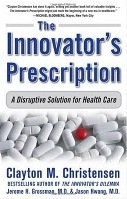January 4th, 2011 by AndrewSchorr in Better Health Network, Health Tips, Opinion, Research
No Comments »

You are an individual right? To your mom and dad you are/were like no other. Hopefully your family and friends continue to see you as one-of-a-kind. Had you considered your doctor should see you that way too? Not as yet another one with diabetes, or heart disease, or cancer, but as a singular human being with biology that may be different from even the next person through the door with the same diagnosis.
This is the age of “personalized medicine” and it will accelerate in 2011. It is our responsibility as patients to ensure the power of this concept is leveraged for us each time we interact with the healthcare system. This is especially true as we manage a serious chronic condition or a cancer.
Now, in research and in clinical practice there are refined tests to determine what our specific version of a disease is and there are tests to see how a targeted therapy is working in our bodies. In other words, there’s the opportunity to see which therapy might be right for us that might be different than what is right for another person, and then there is the opportunity to monitor the therapy early on to see if it is doing its job. Read more »
*This blog post was originally published at Andrew's Blog*
January 3rd, 2011 by Michael Kirsch, M.D. in Opinion, Research
1 Comment »

 The medical profession’s ability to diagnose far exceeds its ability to effectively treat the conditions discovered. Consider arthritis, Parkinson’s disease, irritable bowel syndrome, strokes, emphysema, and many cancers.
The medical profession’s ability to diagnose far exceeds its ability to effectively treat the conditions discovered. Consider arthritis, Parkinson’s disease, irritable bowel syndrome, strokes, emphysema, and many cancers.
When a physician orders a diagnostic test, ideally it should be to answer a specific question, rather than a buckshot approach. A chest X-ray is not ordered because a patient has a cough. It should be done because the test has a reasonable chance of yielding information that would change the physician’s advice. If the doctor was going to prescribe an antibiotic anyway, then why order the chest X-ray?
Physicians and patients should ask before a test is performed if the information is likely to change the medical management. In other words, is a test being ordered because physicians want to know or because we really need to know the results?
Does every patient with a heart murmur, for example, need an echocardiogram, even though this test would be easy to justify to patients and to insurance companies? If the test won’t change anything, then it costs dollars and makes no sense. Spine X-rays for acute back strains are an example of a radiologic reflex. Read more »
*This blog post was originally published at MD Whistleblower*
January 3rd, 2011 by KevinMD in Better Health Network, Research
No Comments »

I’ve written in the past that more medicine and tests do not necessarily reflect better care.
There is no test that is 100 percent specific or sensitive. That means tests may be positive, when, in fact, there is no disease (“false positive”), or tests may be negative in the presence of disease (“false negative”).
It’s the latter that often gets the most media attention, often trumpeted as missed diagnoses. But false positives can be just as dangerous. Consider this frightening case report from the Archives of Internal Medicine:
A 52-year-old woman presented to a community hospital with atypical chest pain. Her low-density lipoprotein cholesterol and high-sensitivity C-reactive protein levels were not elevated. She underwent cardiac computed tomography angiography, which showed both calcified and noncalcified coronary plaques in several locations. Her physicians subsequently performed coronary angiography, which was complicated by dissection of the left main coronary artery, requiring emergency coronary artery bypass graft surgery. Her subsequent clinical course was complicated, but eventually she required orthotropic heart transplantation for refractory heart failure. This case illustrates the hazards of the inappropriate use of cardiac computed tomography angiography in low-risk patients and emphasizes the need for restraint in applying this new technology to the evaluation of patients with atypical chest pain. Read more »
*This blog post was originally published at KevinMD.com*
January 3rd, 2011 by Davis Liu, M.D. in Book Reviews, Health Policy
1 Comment »

 The best book on health care reform — or surviving it — is the “The Innovator’s Prescription: A Disruptive Solution for Health Care.” The decade worth of research spent understanding, studying, and ultimately offering solutions to make the health care system more accessible, higher quality, and affordable is clear.
The best book on health care reform — or surviving it — is the “The Innovator’s Prescription: A Disruptive Solution for Health Care.” The decade worth of research spent understanding, studying, and ultimately offering solutions to make the health care system more accessible, higher quality, and affordable is clear.
Unlike other books, the authors, respected Harvard Business School (HBS) professor Clayton Christensen, Jerome Grossman, a doctor who also was the Director of Health Care Delivery Policy Program at Harvard Kennedy School, and Jason Hwang, another doctor and graduate of the MBA program at HBS, avoid the traps the plague most other solutions by taking a completely different perspective by looking at other industries where products and services offered were “so complicated and expensive that only people with a lot of money can afford them, and only people with a lot of expertise can provide or use them.” Yet convincingly through plenty of examples, it shows how telephones, computers, and airline travel moved from only accessible to those with the resources to become available and affordable to all.
The book tackles every aspect of health care and asks how will those in health care be disrupted and subsequently surpassed by other providers which deliver care that is more convenient, higher quality, and lower cost. Read more »
*This blog post was originally published at Saving Money and Surviving the Healthcare Crisis*
December 31st, 2010 by Toni Brayer, M.D. in Better Health Network, Health Tips
No Comments »

#1 Doctor: Resolve to let patients speak without interruption and describe their symptoms.
Patient: Resolve to focus on the problem I am seeing the doctor about and not come with a list of 10 complaints for a 15-minute office visit.
#2 Doctor: Resolve to keep a pleasant tone of voice when answering night and weekend phone calls from the answering service, patients, or nurses.
Patient: Resolve to get my prescriptions filled during office hours, not forget my medications while traveling, and to use night and weekend phone calls for emergencies only.
#3 Doctor: Resolve to exercise a minimum of four times a week for better health.
Patient: Ditto.
#4 Doctor: Resolve to train my staff and model excellent customer service for patients.
Patient: Resolve to understand that getting an instant referral, prescription, note for jury duty, or letter to my insurance company from my doctor is not my God-given right and I will stop [complaining] if it doesn’t happen the day I request it. Read more »
*This blog post was originally published at EverythingHealth*

















